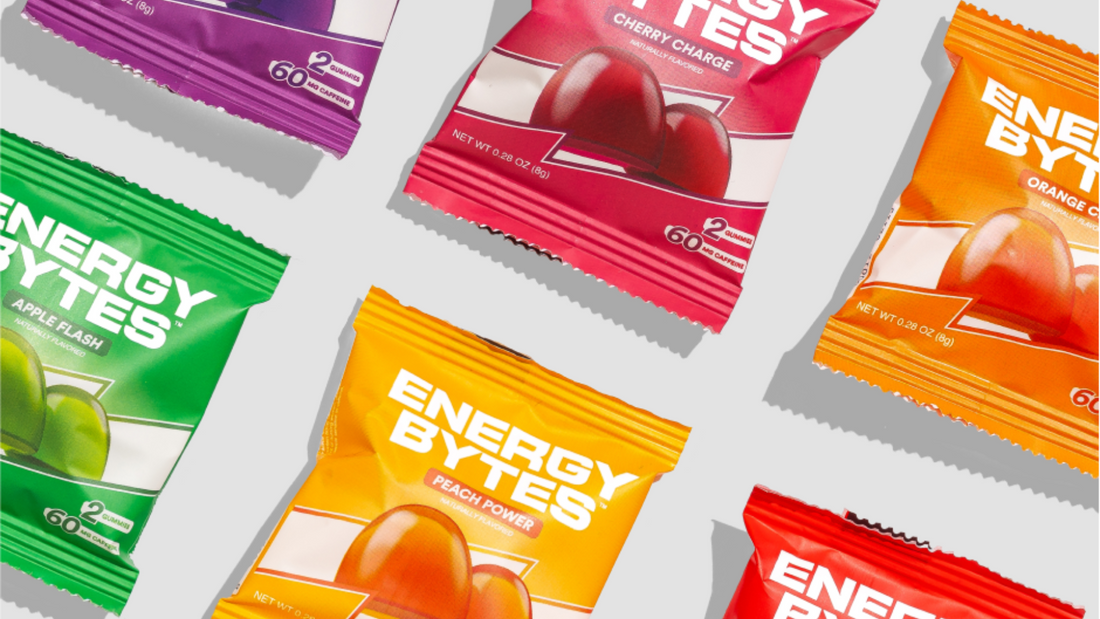Your Cart
0 Items

Natural energy is available for all of us if you know which ingredients to consume. Here we look at the top six ingredients for their natural energy boosting effects on our body and mind. Some serious athletes also use these ingredients to improve their athletic abilities and boost focus and concentration. We’ll briefly explain what they do and how they benefit you.
Caffeine always naturally comes to mind when talking about an energy ingredient. Most of us need but 200mg a day to boost our energy levels and stimulate our metabolism, keep our mind alert and maintain our sporting abilities. It is a mild stimulant which affects the central nervous system. How many of us have felt more awake when we’ve drunk a strong coffee for example and then felt a sharp energising burst to keep us. The other key effect is to raise our metabolism too which is thought to help burn off fat faster (Lorenzo Calvo et al., 2021).
Virtually all energy products claim the presence of B vitamins such as pyridoxine (Vitamin B6), biotin (vitamin B7), pantothenic acid (vitamin B5), niacin (vitamin B3) and cobalamin (vitamin B12). There are 8 in total which are often taken as a complete complex although anyone might be present in substantial quantities to offer a particular benefit. All of these are required for general energy production by cells as well as healthy cell functioning. Some like cobalamin are required specifically for developing red blood cells which as we know are needed for transporting oxygen to muscles. Whilst we might have a healthy diet that provides us with all the vitamins we need, a poor work-life balance and leading a stressful life often means that we have a deficit in energy generation. In part, supplementation with B vitamins helps to make up for when we fall short in our diet because we simply don’t have enough time to consume the right foods (Kennedy, 2016).
Vitamin A (retinol) has a critical function in how cells use energy substrates. Normally cells rely on sugar metabolism which we mention below for producing compounds such as ATP which drives many metabolic processes (Acin-Perez et al., 2010). However, when it is deficient, ATP production falls away leaving an energy deficit. It’s also needed for preventing night blindness and keeping our immune systems working properly so it is much more important than just helping us maintain our energy levels.
Sugar is a natural source of energy for most people. More formally it comes in the form of glucose although fructose is another key type of sugar in the diet. Sugar generally is a basic substrate for a series of metabolic reactions by all cells but the brain especially needs it. It is that organ’s main fuel source. Without it brain cells could not properly send nerve impulses or process the information they receive from our vast set of sensors. Whilst some of us might baulk at the idea of high sugar drinks for example, without it we would not have a readily available source of fuel to keep our body functioning properly.
Ginseng is a root with a long herbal tradition as a remedy for combating fatigue and boosting our energy levels. Whilst plenty of research is still needed to validate the claims made there is an increasing body of evidence to support its role in energy metabolism and overcoming fatigue (Thomas et al., 2014). It contains a range of important compounds called ginsenosides which help our central nervous system to function without overstimulation. These compounds help reduce inflammation which is associated with tiredness as well as balance the outcomes of stress hormones such as cortisol which also influences fatigue (Arring et al., 2018).
A non-essential sulphur amino acid and not found in proteins but it is produced by our liver and found in the brain and skeletal muscle. It is thought to help with the transport of important ions such as sodium, potassium and calcium in and out of cells. It’s role in energy metabolism is associated with regulating muscle performance and adipose fat levels, aiding our resting metabolism and in overall energy production. A number of sports nutrition researchers consider taurine to be a natural complement to caffeine for helping with improved mental performance and alertness too (Kurtz et al., 2021).